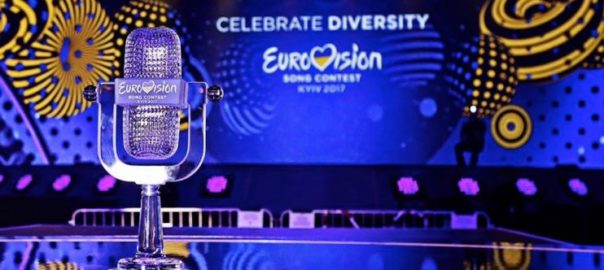What is Eurovision? More than just a song contest, it’s a social and cultural exhibition that brings together ideas, style, and geopolitical feelings from every corner of “Europe”. This post aims to answer everything you ever (kind of) wanted to know about Eurovision.
I am going to do a series of entries about Eurovision from a few different aspects or explaining how and why I like some of the things in Eurovision but this entry is for people who have only ever thought about Eurovision in passing.
What is Eurovision?
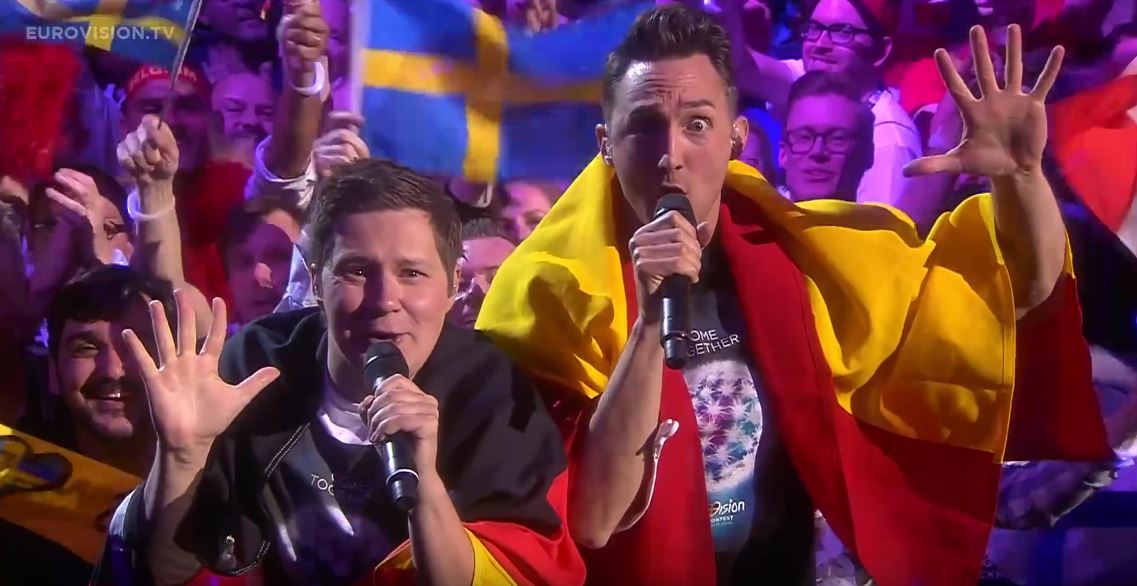 this is pretty much what Eurovision is, sorry for breaking the mystique
this is pretty much what Eurovision is, sorry for breaking the mystique
Long story short, after WWII there may have been some tension in Europe so the EBU (European Broadcasting Union) brought up the idea of having a friendly song contest to drum up some understanding between nations in 1956. Song contests were quite popular nationally at the time and Eurovision is modeled after the Italian national song contest, Sanremo Musical Festival. A lot of changes have occurred since its inception but the basic idea is that it is a contest where nations send an artist with a single song every year to compete against each other.
The basic rules are:
- songs must be 3 minutes or less
- songs can be preformed in any language
- only be six people on stage during each performance
- all vocals must be live
Eurovision has many aspects to it including a “pre-season” where, like most sports, there is involved speculation about the next year, following past artists who competed and won at the contest, waiting and ranking new song announcements and even a surprising amount of professional betting.
When is Eurovision? How long is it?
Eurovision moves around a bit but for the past decade it’s always been sometime in May.
The system in place now has three shows: two semi finals (occurring on a Tuesday and Thursday) with ten entries from each semi final moving on to the final (which occurs on a Saturday) which contains 26 entries in total. These shows each last about 2 to 3.5 hours.
How many countries are in Eurovision? How many can participate?
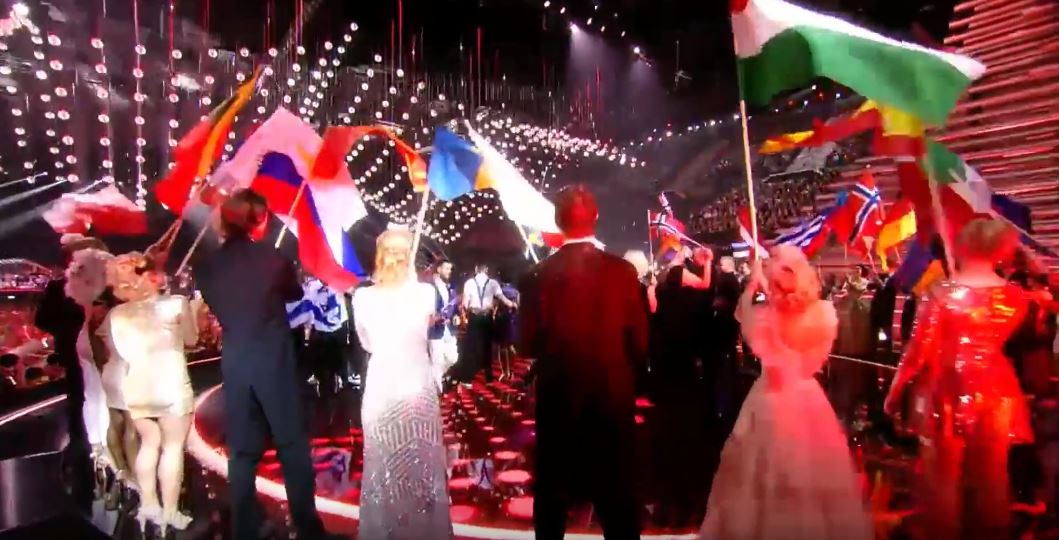 that’s a lot of flags…
that’s a lot of flags…
There are usually around 40 countries participating, this year [2018] will have 43 countries. The EBU has mentioned there is probably a hard cap somewhere around 46 countries as anything beyond that will make the contest too long.
Wait. It’s called Eurovision but Australia, Israel, etc. aren’t in Europe?
 what the hell are you doing here Israel!?
what the hell are you doing here Israel!?
This is because it’s not a European song contest, despite the name. It’s a contest run by the European Broadcasting Union (EBU) which is a conglomerate of public broadcasting companies from many countries, some of them outside of Europe (even though the idea of Europe is also a construct but we don’t have time to unpack that). The EBU decides on a case by case basis which countries to allow to possibly send entries based on membership type and viewership numbers for the song contest itself.
Are Eurovision artists government sponsored?
Well, not really, the song are picked by the public broadcasters (in various ways). In this way, songs are not government sponsored in a direct sense but there’s a little bit of wiggle room to this idea. All of these networks are public broadcast networks which simply means they are available for free to the public and made for the benefit of the public. These networks are funded in a variety of ways though from taxes and fees, government funds, or even direct sponsorship by companies. It’s not as though PMs and leaders of the countries are picking songs of course, it’s more abstract than that but some governments can have a more direct hand in the leadership of these networks and the types of choices they might make.
Who pays for Eurovision?
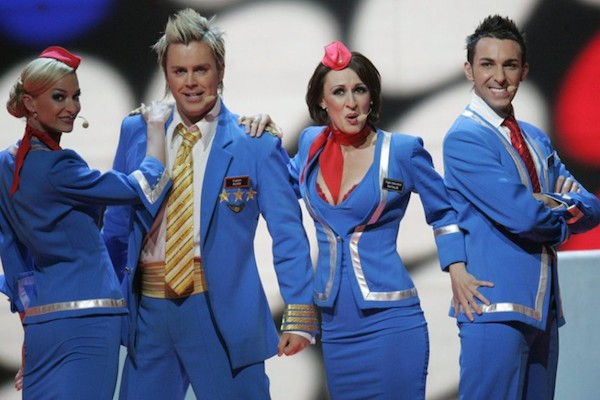 yes, the UK pays extra to send quality acts like this every year
yes, the UK pays extra to send quality acts like this every year
Each public broadcasting company that participates in Eurovision has to pay a fee to enter Eurovision to represent their country. On top of that France, Germany, Italy, Spain, and the United Kingdom all make extra contributions to pay for the rest of the contest with the trade off that their entrants go directly to the final. The host country, which changes based on which country won the previous year, also usually pays a significant portion of the show cost.
Why do you keep saying “countries” to refer to the entries if they’re not picked by the government?
It’s just a shorthand / stand in for the names of each broadcasting union and it’s the way the contest refers to each entrant. It can lead to some interesting sentences at least.
So how do the songs get picked then?
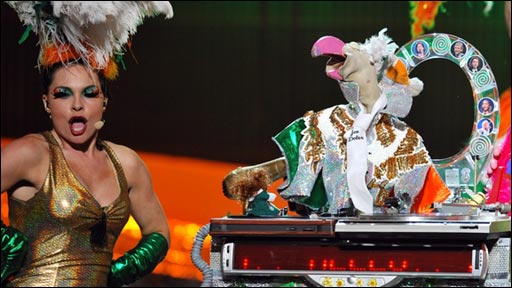 This turkey puppet from 2008 is probably why Ireland has internal selection to this day.
This turkey puppet from 2008 is probably why Ireland has internal selection to this day.
Songs are selected usually by one of two ways: public voting or internal selection. In about half of the countries, the songs and artists are picked by the public broadcasting committee itself and we do not see any internal process, they simple announce one day who is representing them. In the other half of the countries they are picked by public voting in the form of national finals which can be as simple as a single one-night event with a handful of choices that were selected by the network like BBC’s one night event entitled “You Decide” or as complicated as Lithuania’s “„Eurovizijos“ dainų konkurso nacionalinė atranka” which involves several heats of more than 30 artists over at least 10 weeks to pick a single winner. These usually involve a mix of broadcaster selected juries and general public voting online or by phone to pick an artist and song to send.
Why would a country bother sending songs to Eurovision?
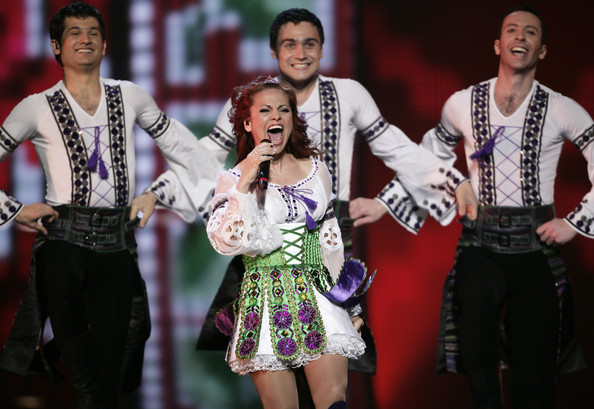 Moldova (2009) giving you all the soft power you can handle
Moldova (2009) giving you all the soft power you can handle
The idea works in a similar way to the Olympics in that many countries get to send representatives and wage a sort of pseudo-cultural war while presenting their countries in the best light. There are no real prizes for winning but a good song or a good show is an easy way to win some soft power in the world.
Winning Eurovision or placing high at Eurovision usually means a chance to tout your country as a good place to live/work/visit. It can come with more national interest in your culture, higher tourism, and/or a more positive public image for your country.
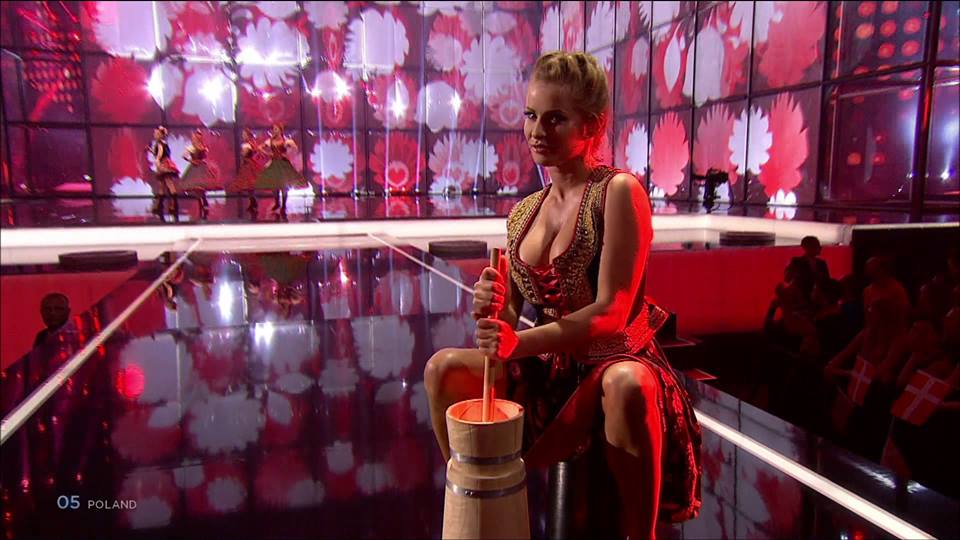 Many suspect Poland had an uptick in tourism after Eurovision 2014…
Many suspect Poland had an uptick in tourism after Eurovision 2014…
How do you WIN Eurovision?
 Portugal’s Salvador Sobral, winning in 2017
Portugal’s Salvador Sobral, winning in 2017
Eurovision has a voting system which consists of a jury which is selected by the broadcasters from each country and also public voting by phone. If you’re in one of the countries participating in Eurovision you’ll be able to vote for any country that is NOT your own country.
The points system is a little complex but you can give points to 10 countries, you assign 1 to 7 to 7 countries and then assign 8, 10, and 12 points to your three highest ranked of the ten countries. 12 points is often called “douze points” as Eurovision is dual annouced in English and French. You can see this further explained here. Once the points are totaled, highest points wins.
Do I need to know anything to watch Eurovision?
Not really. There’s plenty of in-gags and it’s nice to know how to the voting system works beforehand as it can be a little difficult to grasp but the show is for the average person who is just there to watch the spectacle so it’s extremely accessible. Also at the end of the day it’s just a show with two dozen or so three minute long music performances.
Where can you watch Eurovision?
In most countries you can watch Eurovision on your local public broadcaster. In many countries you’ll be able to stream a non-narrated live feed from YouTube. In the US, you can only watch the show on LOGO TV while it is live.
Can I watch last years Eurovision to get a taste for it?
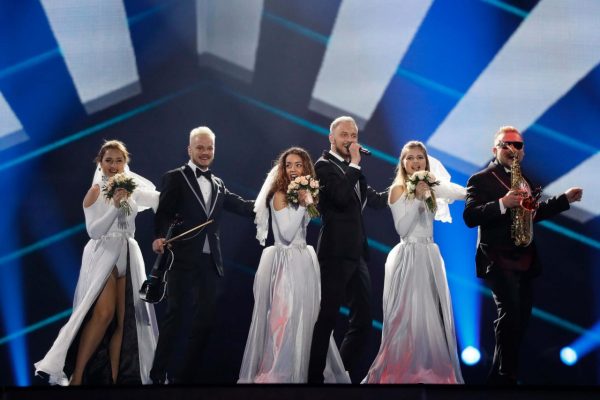 My favorite unexpected delight from last year
My favorite unexpected delight from last year
You can watch the 2017 Eurovision Grand Final in full here but it may be restricted in some countries.
If I want more Eurovision news, where can I go?
The best places for an intense about of Eurovision news are ESCToday and Eurovision World. If you would like to gossip rag version of Eurovision you can check WiwiBloggs. There are several great YouTube channels as well, I would recommend the Eurovision Song Contest official channel to start and ESCKAZ.com‘s channel as well.
I hope that this helped explain some of the basic concepts around Eurovision and if you have any other pressing questions that can’t be answered by a simple google I’ll be happy to include them in my upcoming parts of our Eurovision journey!
Next time we’ll explore the wild, untamed spectacle of Eurovision together so stay tuned!
